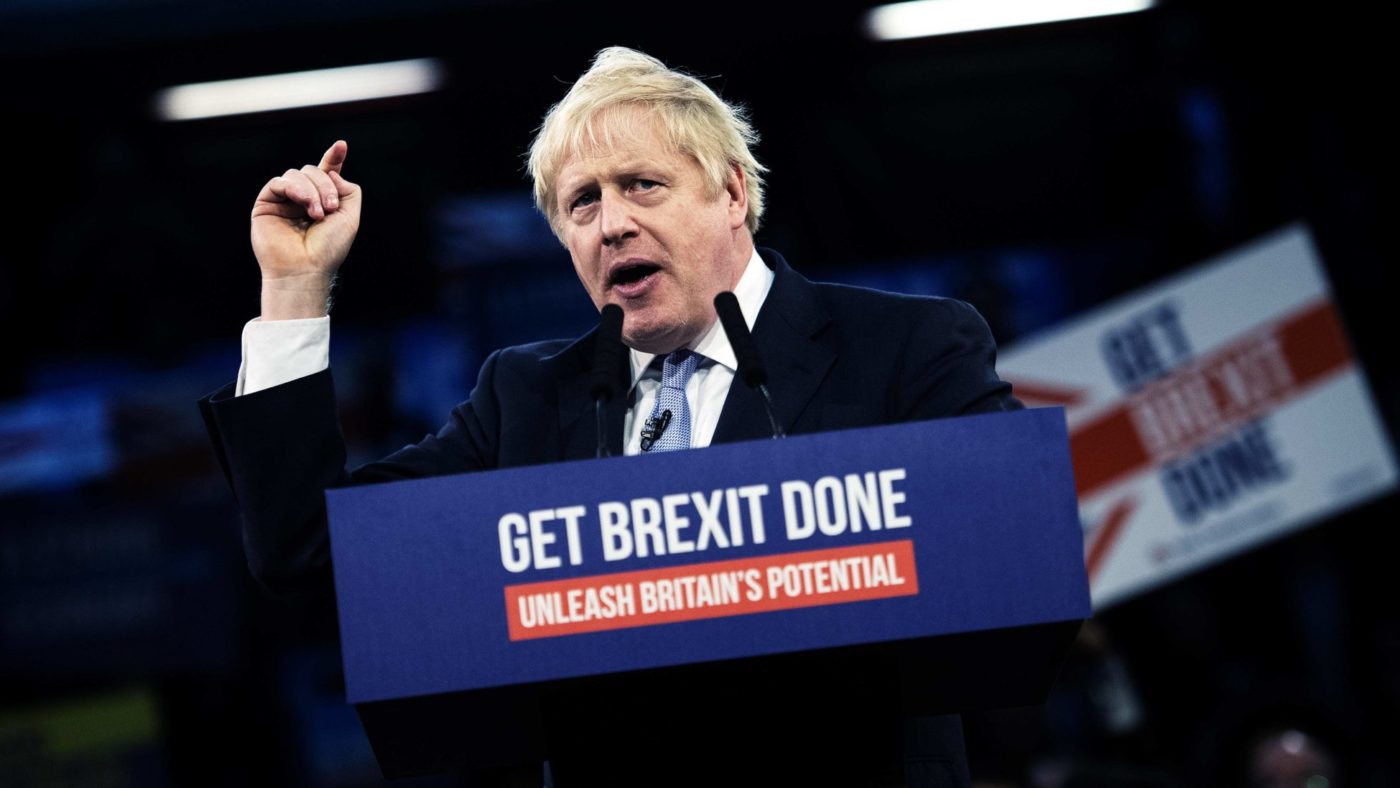A little over two weeks ago, in typically unorthodox fashion, Dominic Cummings uploaded his thoughts about the ongoing election onto his personal blog. For the most part, the Prime Minister’s strategist stuck largely to his campaign’s core script, albeit with more capital letters and tirades about Dominic Grieve. Yet towards the end of the article, en passant in the postscript, Cummings pointed his readers to a long paper by a hitherto politically obscure physicist from Sheffield University, Richard Jones.
The paper, Cummings suggested, contained numerous “ideas about how the government could really change our economy for the better” and is certainly worth a read. Indeed, as an object lesson in how to construct an expansive and data-rich case for systemic public policy change it is pretty near faultless. The ideas too, I find to be entirely unproblematic. Identifying regional inequality as the predominant economic challenge; rejecting supply-side reforms in favour of state-led industrial activism; far-reaching devolution and decarbonisation – these are all convincing and correct arguments. It’s just that shorn, perhaps, of the counter-intuitive political thrill they may evince when clothed in Tory blue, they are, well, a bit boring. I’ll put it another way: having spent ten years frequenting dull-as-dishwater centre-left economics seminars so that you don’t have to, I cannot remember a single event where one of these arguments was not inelegantly expressed. Dominic Cummings’ grand economic vision might just be to imbibe all the comfort-zone industrial policy instincts of Ed Miliband-era social democracy.
In the wake of last week’s map-redrawing election victory, perhaps this is less surprising. Throw in Brexit, NHS investment and some red conservative meat on crime, and you probably have a political strategy more than winsome enough to buy Cummings the time he needs to do whatever he wants to Whitehall. To be sure, there are big battles ahead in Scotland and Europe, but the Prime Minister and his strategist must now reckon upon a becalmed domestic front. Certainly, the early skirmishes of the Labour leadership contest do not give one much hope they will be able to reclaim any ideological ground in their lost heartlands. Therefore, if there is to be any intellectual resistance at all this Parliament, the smart money is that it comes from within. The scene is thus set, perhaps, for an intriguing battle of ideas over the contours of modern conservatism. In the blue corner, you have the “go global” free market libertarians. In the increasingly reddish one opposite, the state-sympathetic “vote leave” populists.
At the moment, led forcefully by Cummings, the latter group are undoubtedly ascendant. The reason for this is hardly revelatory: he has the new Tory voters on his side. It may still come as news to the likes of Dan Hannan, but there is compelling evidence that living, breathing Brexit voters’ collectively tend towards protectionist and anti-market views on the economy. In fact, the whole winning Tory strategy was predicated on this and Cummings’ blog post indicates quite clearly he sees no reason to change this now the job is done. If he gets his way Lord Lawson will indeed be right that Brexit will “finish the job Thatcher started”. Just not at all in the way he meant it.
More classically free market Tories therefore have a choice: accept this new interventionist economic strategy or fight it. But if they choose the latter route then they must surely embrace a second question: what new offer do they have for the people of Blyth Valley? And here it becomes difficult to see how a more scrupulously free market economic strategy could be sold to less prosperous areas without also acknowledging that a more generous welfare settlement is needed alongside it. If you are less bothered about where the pie is ultimately grown, then as a bare minimum you should want better ways of sharing the pie.
All of which is a long way of saying that those Tories who bristle at more state direction of the economy, should be more ready to embrace a different tenet of social democracy: tax and transfer. This would contrast Cummings’ increasingly German-influenced Toryism with a new and distinct Swedish-flavoured alternative. I have little doubt that this may not be music to all ears – the free market caucus of Tories is, to put it mildly, not known for an outsize love of redistribution. But the lesson to draw from the Labour Party’s disaster last week is that to cleave to dogmatic purity as the political tectonic plates visibility shift, is only to condemn yourself to irrelevance.
Click here to subscribe to our daily briefing – the best pieces from CapX and across the web.
CapX depends on the generosity of its readers. If you value what we do, please consider making a donation.


